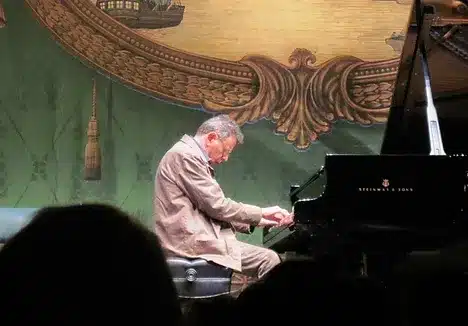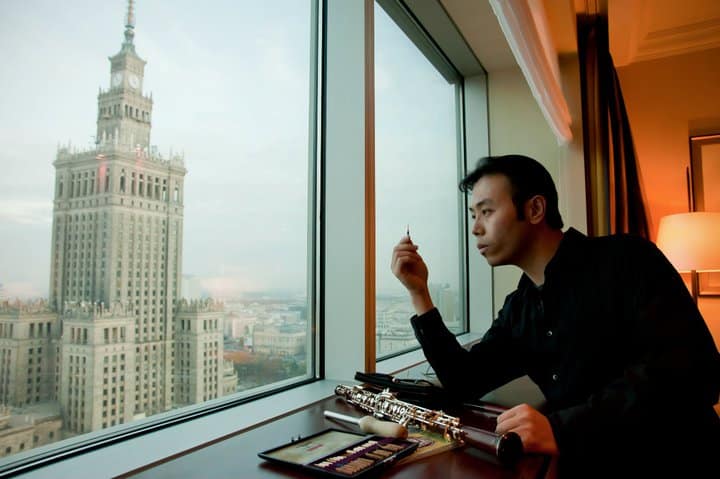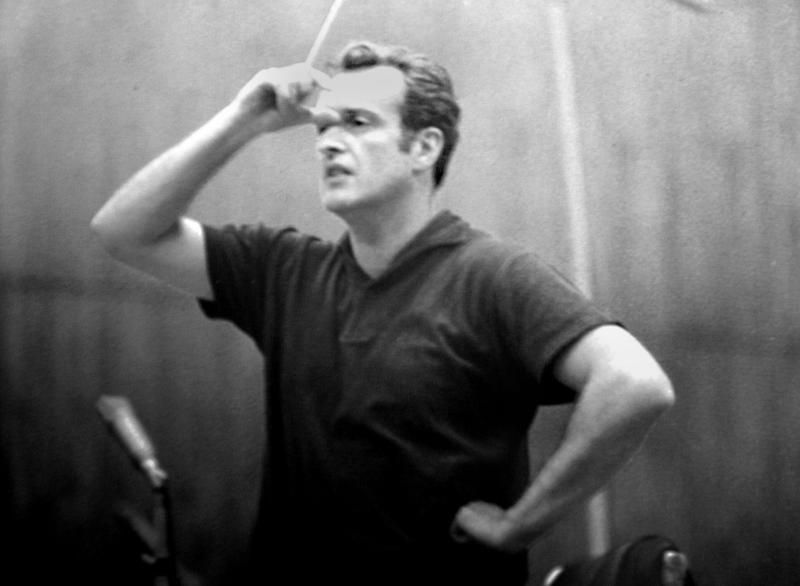Exclusive: Major US festival dumps new music
NewsThe Spoleto Festival USA has cancelled it Music in Time series after more than three decades.
Between 1990 and 2023 the series presented work by 475 composers including US premieres of Michel van der Aa, Thomas Adès, Gavin Bryars, Britta Byström, Tansy Davies, Brett Dean, Kui Dong, Pascal Dusapin, Bernd Franke, Toshio Hosokawa, Giya Kancheli, Steve Martland, and Saariaho.
But executive director Mena Mark Hanna and his music director Timothy Myer just cancelled the strand.
Its founder John Kennedy writes:
When Spoleto Festival USA recently announced its 2024 festival, something was conspicuously absent: the Music in Time (MIT) series. Music in Time had served as a core element of the festival since 1990, and had a tangible impact on the evolution of the festival’s reputation for innovative opera and orchestral programming. Music in Time also developed a personality and relationship with many audience members over its 31 seasons, so its death would seem to call for an obituary and some honorific closure, at least noting the broad strokes of its life.
Read on here.






Spoleto also dumped a Handel opera and screwed over a bunch of singers who had been on hold for this summer for months. No efforts to make it right either.
I understand the predicament and feel bad for the singers…but, they (and their agents if they have them) should know that there is no such thing as a “hold” these days (and hasn’t been for a long time). Unless there is a contract, no time is guaranteed. Singers should not feel bound to a hold if a company can’t finalize and warrant a contract. The loyalty does not work both ways. Been there, done that way too many times over the years.
There was a contract. The Festival cried poor, even after being repeatedly challenged to pay the full amount.
If there is a legally binding contract, they have to pay. Unfortunately, that festival is not a union house and so the artists will not have the backing of the union. But, the contract is still enforceable by the State of South Carolina labor rules if the artists want to press that.
As far as I know, there is no performer in the world who would agree to turn-up without a contract.
Spoleto used to have two opera productions, usually one big, often standard repertory, and one smaller one, often contemporary and U.S. or World premiere.
The festival’s excellent reputation under Redden/Kennedy rested on its scrappiness and its willingness to think small to create something big. It was totally unlike any other festival.
Now it’s Benjamin Millipied, Yo-Yo Ma, and Mahler 5, with a few premieres sprinkled in – corporate programming that’s increasingly less distinguishable from elsewhere. Is anyone surprised that their MD went to Harvard Business School and has a podcast?
He got a fake degree at HBS, don’t believe (his) hype
Maybe the programming was not woke enough?
I just looked over the Spoleto programing for this year. Lots of new music, however, there is a bent on world music and more mainstream music. Classical is there, but in short supply. So one would have to know how the ticket sales have been over the past few years to better understand their new direction.
According to the local press, he new director turned over the entire administrative staff and replaced Kennedy w his BFF.
New music doesn’t pay the bills, apparently. Between artist compensation and score rentals and public apathy, ticket sales were probably lackluster at best.
Why has the status of new music sunk so low? Even in a country where being modern, up-to-date, is cultivated as a sign of cultural viability? Who or what is to blame? Before WW II every premiere was looked forward to with great curiosity and hotly debated, be it a first by Ravel, Bartok, Stravinsky, Vaughan-Williams, Poulenc, Prokofiev or Mr X.
Perhaps the academics pushing serialism on a public that did not like it?
Right… because serialism is being pushed. If you’re literate, try reading Joseph Strauss’ article on this. He proves very clearly that it’s a notion which was fabricated. Serial works had very few performances in comparison to other new music practices. And how would that explain the dying audiences of TODAY who also don’t want to listen to Glass or the almost entirely Non-serial registry of composers who are on new music concerts? Stop with your provably false nonsense.
Correct.
Most of the current non-serial, non-modernist music is met with the same indifference by audiences as serial music. But it began with serial music, that is where the fragile bond of trust snapped, it seems.
Stravinsky even auctioned the premiere of his Octet.
Nope. Consistently sold out and got Charleston audiences enthralled about innovation in arts. I witnessed it
Dead, European males are keeping orchestras afloat and providing financial sustenance for New Music dabbling.
It probably takes two Beethoven 5 or 9 performances to fund a click-clack-clang clan concert.
Nevertheless, this is unfortunate for all artists involved.
It shows that Mr Beethoven is alive and kicking. There is a lesson here for contemporary composers.
Who said that Beethoven’s Grosse Fuge is arguably the most “contemporary” musical work of all times?
I think it was Stravinsky.
But the notion is nonsensical. It was meant as an accolade from the side of 20C avantgarde modernism which is hardly a compliment.
It stems from the absurd idea that ‘dissonance’ and ‘complexity’ are signals of ‘modernity’, and thus of progress.
These notions can change quite much over time. In the sixties of the 18th century, ‘modern’ was the quasi-childlike simplicity of a Haydn and JS Bach’s towering complexities seen as entirely outdated and stuffy oldfashioned.
Most concert-goers deem New music to be experiments in sound generation, NOT “music” inspired from genius! Programming “new music” is the fastest way to bankruptcy I can think of!
Not if it’s good new music. If an organization programs too much of that 12 tone crap it will make audiences think all new music is bad.
Of the 475 composers, how many will we still remember 100 years from today? Quantity doesn’t mean quality.
I have given up on waiting for the second coming of Mozart or Schubert; would be content with a Cimarosa or a John Field.
South Carolina Labor Laws?
Isn’t tha
Typical of Slipped Disc the headline is misleading…there is still some new music in other parts of the festival but what is dumped is the series. But the spinmaster CEO will give some excuses about having more and better this and that when he has run the place into the ground and destroyed the history.
so why are you slandering slippedisc? how else would you have this information?
Thank goodness. I only want to hear Bach Beethoven and Brahms
To B, to B or not to B, that is the question, so hail to Babbit, Berg, Berio, Birthwistle, Boulez, and Bessiaen!
Sally
When asked why he quit composing, Sviatoslav Richter reportedly answered, “What the world doesn’t need is more bad music”.
What we have now, mainly, is ‘placebo music’.
At the major symphony orchestra concerts they play new music in the beginning so people don’t / can’t run away during intermission.
It’s called the OOMP: the Obligatory Opening Modern Piece.
So many amazing pieces of music and so much representation of diverse and emergent voices —alongside the likes of Phil Glass etc. Remembering the thrill of seeing people cheer to so many of the works. If you weren’t there, you should not make sweeping statements that display retrograde tendencies perhaps. Ask audiences who were there
What a shame. When the MIT series first took shape – around the early ’90’s – I recall new music by living composers being as cutting edge as woke programming is today. Seems that priorities have changed. New music alone doesn’t cut it now – it has to be new music by composers of the right race, gender and sexual preference. No judgement, just my observation.
I’ve played at Spoleto and Kennedy couldn’t conduct his way through a 4/4 Bach chorale. Say what you want about the CEO (and the programming is more commercial, for sure), but he knows orchestras and knows new music, and they’re doing a lot of premieres and new works this year throughout the festival.
When?
Retirees don’t like to be unsettled with “new woke stuff” they don’t already know by heart.
No copyrights, no pain.
As someone who has attended Spoleto, all I can say is “Thank God” for there being less modern music programmed. I am not alone in saying that the more modern and “music of diverse voices” there is, the less likely people are to attend. I took one look at this year’s schedule and for the $90-$160 being charged per ticket said “Nope”…You go woke, you go broke…and that is true my friends. Also, as to new music being applauded at Spoleto, that is only true because Charlestonians are too polite not too!